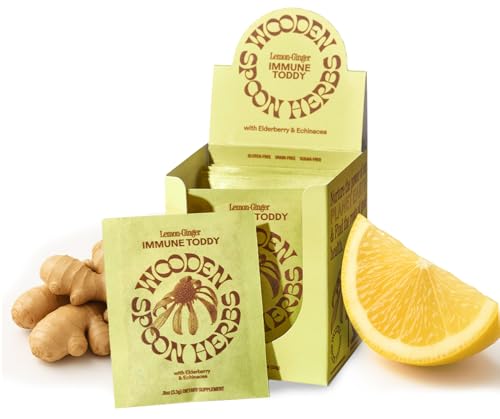Echinacea Cream for Eczema: Does It Work?
Quick Summary: Research shows that a cream made from Echinacea extract may help reduce eczema symptoms like itching and inflammation. It seems to work by calming the skin and helping it repair itself.
Can Echinacea Help Eczema?
Yes, this study suggests that a cream containing Echinacea extract could be a helpful treatment for eczema (also known as atopic dermatitis). The research found that the cream reduced inflammation and improved the skin's natural barrier, leading to fewer eczema symptoms.
What The Research Found
The study looked at how Echinacea extract affects eczema. Here's what they discovered:
- Reduced Inflammation: The Echinacea extract helped lower levels of substances that cause inflammation in the skin.
- Improved Skin Barrier: The cream helped the skin make more of the fats and structures that keep it healthy and protected.
- Fewer Eczema Symptoms: People using the Echinacea cream saw a decrease in their eczema symptoms.
- Safe to Use: The cream was well-tolerated, meaning it didn't cause irritation or allergic reactions.
Study Details
- Who was studied: People with eczema.
- How long: The study lasted for 15 days.
- What they took: Participants used an Echinacea cream twice a day.
What This Means For You
If you have eczema, this research suggests that an Echinacea cream might help:
- Reduce itching and redness.
- Improve the overall health of your skin.
- Be a safe option for managing your eczema.
Important: Always talk to your doctor before trying any new treatments for eczema.
Study Limitations
It's important to keep these things in mind:
- Short Study: The study was only 15 days long, so we don't know how well the cream works long-term.
- Small Study: The study involved a limited number of people, so more research is needed.
- Comparison: The cream was compared to a cream without the active ingredient, not a standard eczema treatment.
Technical Analysis Details
Key Findings
The study demonstrated that Echinacea purpurea-derived alkylamides (Ec. extract) reduced pro-inflammatory cytokines (IL-6 and IL-8) in vitro and significantly improved clinical symptoms of atopic eczema (AE) in human trials. Topical application of Ec. extract cream enhanced epidermal lipid content (ceramide EOS and cholesterol) and intercellular lipid lamellae structure, suggesting dual anti-inflammatory and skin barrier-restoring effects. The cream was well-tolerated, with no irritation or sensitization observed.
Study Design
This 2017 study combined in vitro experiments with three randomized, double-blind clinical trials:
1. Clinical Trial 1: Safety assessment (n=50) using a Human Repeat Insult Patch Test (HRIPT).
2. Clinical Trial 2: Efficacy in AE symptom relief (n=60) over 15 days, comparing Ec. extract cream to a comparator vehicle cream.
3. Clinical Trial 3: Skin structure/lipid analysis (n=30) via transmission electron microscopy and HPTLC.
In vitro work used HaCaT keratinocytes stimulated with poly(I:C) to mimic inflammation.
Dosage & Administration
Ec. extract was formulated into a topical cream (exact concentration unspecified in the summary) and applied twice daily to affected skin areas. The comparator in Trial 2 was an identical vehicle cream without Ec. extract.
Results & Efficacy
- In vitro: Ec. extract significantly reduced poly(I:C)-induced IL-6 and IL-8 mRNA expression and protein release (p<0.05).
- Clinical Trial 2: Ec. extract cream reduced SCORAD (Severity Scoring of Atopic Dermatitis) scores by 15.4 points from baseline (p<0.05) and outperformed the comparator (9.2-point reduction, p<0.05).
- Clinical Trial 3: Increased epidermal lipids (ceramide EOS: +23%, cholesterol: +18%, p<0.01) and intercellular lipid lamellae density (p<0.01) were observed, indicating improved skin barrier integrity.
Limitations
- Short trial duration (15 days) limits conclusions on long-term efficacy/safety.
- Small sample sizes (n=30–60) may reduce generalizability.
- Comparator in Trial 2 was a vehicle cream, not an active standard treatment (e.g., corticosteroids).
- Mechanism of CB2 receptor activation was hypothesized but not directly measured in humans.
- No data on recurrence rates or maintenance of effects post-treatment.
Clinical Relevance
The Ec. extract cream shows promise as a safe, dual-action adjuvant for AE management. By reducing inflammation and restoring skin barrier lipids, it addresses both symptoms and underlying pathophysiology. However, larger trials comparing it to established therapies and longer follow-up periods are needed to confirm its role. For supplement users, this suggests topical Echinacea alkylamides may offer targeted relief for mild-to-moderate AE without significant adverse effects, though formulation specifics (e.g., concentration, vehicle) remain unclear.
Note: The study did not specify participant demographics (age, gender, AE severity) in the provided summary. Full details may be available in the original publication (PMID: 28610718).
Original Study Reference
Echinacea purpurea-derived alkylamides exhibit potent anti-inflammatory effects and alleviate clinical symptoms of atopic eczema.
Source: PubMed
Published: 2017
📄 Read Full Study (PMID: 28610718)


